Cristina Martinez Garcia of Sacyr is on a mission to put a positive spin on the risk manager role
Instead of trying to avoid loss altogether, the focus must be on empowering informed risk-taking – so your decision-makers can say “yes”, she thinks.
Martinez’ personal motto is that ‘better-informed people make better-informed decisions’. For too long the risk management profession has been focused on the downside when instead what needs to happen is for risk managers to position themselves as facilitators of informed risk-taking.
“Risk management is not about managing risks. It’s about managing how people take decisions,” she says. “It’s about bringing together the two sides of the same coin and we need to think like a business executive or board member.”
“So don’t focus on loss, focus on how better informed risk-taking gives the organisation an advantage. The management of downside is part of that, but it’s not what business leaders think of as their primary objectives.”
Martinez is one of a new generation of forward-thinking, tear-up-the-rulebook risk professionals. Currently the chief risk officer (CRO) of the seventh largest infrastructure concession company in the world at Sacyr, Martinez has spent the last two decades pushing a global and strategic view of risk and leading organisational resilience practices across industires in both business and academic worlds.
She is a former CRO for both Campofrio Food Group and Iberia Airlines, cofounder of the Spanish Risk Management Association IGREA and has served on the board of FERMA.
Her most memorable career highlights are those that are set against the backdrop of global crises: starting at Iberia Airlines shortly after 9/11; hitting the ground running at Campofrio Food Group after the 2008 Global Financial Crisis, where she oversaw a major acquisition and implemented an ERM strategy across the group internationally; and now, as she continues to steer Sacyr through the choppy waters of a pandemic disrupted world.
She is the first to admit things have not always gone smoothly but notes that it is not until you meet adversity that you learn and grow. “I value these moments dearly,” says Martinez. “On the other hand, I have experienced some incredibly satisfying victories thanks to the amazing people I have met globally throughout this journey.”
“I’m privileged to have learned from top-notch experts and assisted executive teams of multinational companies facing some immense challenges, from M&A, launching of new products and services, reinventing their business models and a wide variety of crises. And I think this is always worth time, effort, sweat and tears.”
Tools for resilience
Her goal throughout her career so far has been to continually reinvent the role of the risk manager so she becomes a critical partner from the perspective of operational resilience and corporate governance.
“I became an expert in designing, implementing and developing tailor-made risk solutions and integrating these as part of the overall strategy, risk culture and the day-to-day operations of the company,” she explains.
Initially attracted to risk management as an actuary, her close relationship with business operations and curiosity soon led towards non-insurable risks. “One of my turning points was realising the power of risk management and resilience as a transformation catalyst. I soon realised that an integrated governance and risk management framework was central to inform decision-making in the organisation at all levels.”
At Sacyr, the Spanish-headquartered global infrastructure development and project management group, Martinez has most recently implemented a transformation programme to extend ERM best practices throughout the organisation.
“I’m very proud of the groundbreaking risk management framework we have created,” she says. “It works as an early warning system and connects more than 1,200 experts. The system allows us to put people in the centre and helps project teams to anticipate, prevent, act and report accordingly, in the most practical way.”
A new era of risk
In September, Martinez became the first candidate from Spain to earn a Certificate in Risk Governance from the DCRO Institute. As the world changes, risks become more intangible in nature and ESG criteria rises up the agenda, risk governance will become essential, she believes.
“A new era of risk governance transformation is upon us and is here to stay. The global push for companies and their leaders to do things better, in the long run, is far beyond getting a better ESG score,” she explains. “As the concept of risk is more fluid than ever, a qualified risk director in the boardroom can help companies to bring a unique perspective to the strategic dialogue among the group.”
In addition to gaining her certificate, Martinez also collaborates with the Institute in a teaching role. She is a faculty member, teaching resilience, business continuity planning and risk governance to senior executives around the world.
“Investors, clients, partners, regulators and boards are demanding better governance of risk-taking, and someone with these skills adds another element of diversity to the boards’ discussions. Diversity across gender, experience and perspective makes us better innovators and better risk-takers.”
Pursuing a Certificate in Risk Governance is more than just getting a piece of paper, she asserts. It is an ongoing process.
“It is about making risk management easy to understand for people who don’t belong to the risk and insurance sector and to bring a strategic dialogue about risk to the boardroom. This has helped me a lot to better understand board operations and align their interaction with the executive team, as well as to avoid underselling the role of the chief risk officer in the company. Unpacking the enigma of modern-day boards effectiveness is a process and a discipline,” she says.
ESG challenges shaping our role
Martinez spoke to StrategicRISK just before the start of COP26 and after discussions had been taking place at FERMA and other risk management conferences surrounding the role of the private sector. ESG is not a new concept, she says, but metrics around ESG criteria are pushing organisations to approach and evaluate their biggest exposures in an increasingly intangible environment.
“Sustainability is much more than ESG, it is about assigning value to intangible assets including, for example, ethics, geopolitics and technology-related risks and it has been picking up for decades.”
”Capital providers, including insurance companies, naturally want to know more about the biggest values at risk and that’s where ESG metrics play a role. It can help them to evaluate potential risks to corporate reputation, for instance. In the face of big operational disruptions, capital providers and consumers want to know if companies are assessing the impact of risks that we have.”
“For example, COVID-19 was not a unique event. We had other diseases, such as SARS in 2002, Swine Flu in 2009, MERS in 2012, and these disruptions evidenced that companies were more vulnerable than we thought. COVID-19 outbreaks in some parts of the world completely stopped production, and now investors are asking when they are next going to be blind-sided.”
“We are facing systemic risks, so we need systemic holistic solutions and public-private cooperation, because capital providers cannot finance the multiple risks.”
Data around ESG is also essential for resilience and competing successfully. “If we don’t know whether our organisation understands risk as well as our competitors, we may be falling behind in our own performance,” says Martinez.
“While the ESG agenda is broad and diverse, the drivers are generally about providing us with insights into all the forms of capital we need and our engagement with them, which gives us a strong competitive advantage over those hunting for the same capital.”
“Risk management is not about avoiding loss or controlling loss – it’s the other way around. It’s about a positive risk-taking approach. We can’t prevent the bad things from happening, but we can ensure our people can react and respond more quickly, that there is more coordination, and that negative scenarios are better estimated and coordinated.”
The global pandemic has elevated the role and importance of risk management, and now there is no going back, thinks Martinez. “COVID-19 has revealed that the systems upon which we depend for our success – in the past worked so well we hardly noticed them. But now, we have their attention.





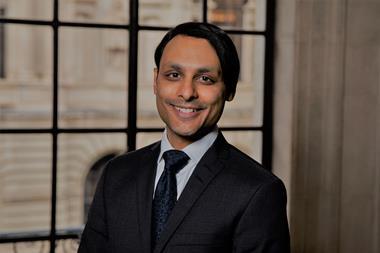

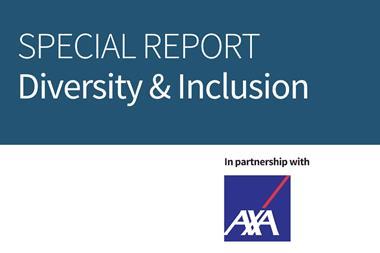
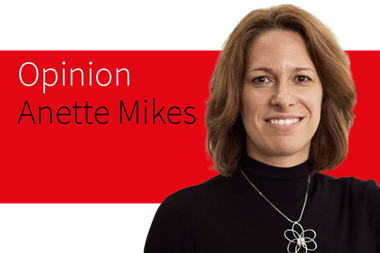
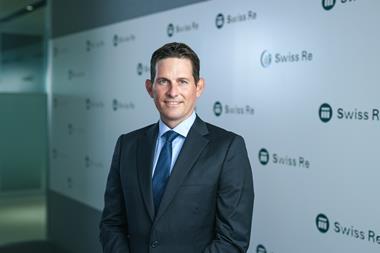
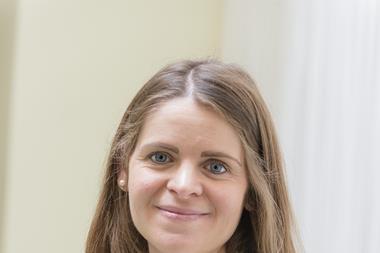









No comments yet